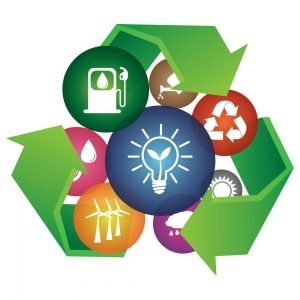By Julie Starr
•
August 8, 2025
Are you hoping to build a heavy industry business? It’s the kind of company that can have globally sweeping positive and negative effects. On the one hand, you’re contributing to the industry, ensuring there’s enough supply to meet demand, and you can do your best to operate in a sustainable way that prioritizes the environment. But on the other hand, the heavy industry has long been the most significant business polluter in the world. Despite advancements in industry technology and usage, their ranking relative to other sectors, such as food and beverage , and shipping and logistics, has remained unchanged as of 2025. Requiring extensive use of large, heavy, and expensive machinery, the fumes produced by heavy-duty factories in sectors like mining, aerospace, nautical, and metal production regularly cause harm to both human and animal life. It’s why anyone interested in investing or scaling within an industry like this needs to focus on their company’s carbon footprint. There are various ways to ensure you’re limiting your harmful output and waste, and you’ll want to use as many as possible within your operation. Check out our recommendations below. Work with Green Suppliers No matter what stage you sit at in the hypothetical supply chain, you’re likely to source at least part of your overall production material from a supplier. If that’s not the case, you’ll still need to work with companies that provide machinery and equipment, as well as replacement parts for these industrial items. All in all, to make as sustainable a choice as possible, you’ll want to commit to working with a ‘green’ supplier who makes eco-conscious choices at every step. Eco-friendly suppliers will strive to both implement sustainable practices within their production line, as well as provide sustainably made and/or extracted materials. The products and/or parts they send out are likely to be recyclable when they reach their end-of-life period, or they’ll run a scheme where you can send old or broken parts back to them. Offset Your Carbon Emissions Offsetting carbon emissions converts the waste output from your operations into something more positive. If you’re interested in programs like this , you can use official government platforms or climate charity websites to contribute. You’ll be able to find a variety of projects that have been undertaken to remove CO2 from the atmosphere, and they’ll be located in various regions across the world. You can choose to patronise as many of them as you wish, but if you want to focus on specific types, you’ll also be able to do so. When approaching a program like this, it’s usually best to offset month by month, as this helps you stay on top of your carbon footprint. Be sure to invest in as much carbon removal per tonne as your business has potentially contributed to the atmosphere in the last month. But before you go any further, there’s one thing you need to keep in mind here: Carbon offsetting is just one sustainable practice you can turn to, but it’s not the only one your business will ever need to use. Yes, it’s one of the most sustainable practices a heavy industry business can invest in. But that’s only true when it’s partnered with real-time carbon-lowering efficiencies within day-to-day operations. Repair, Rather Than Throw Away Repairing is the best option if a repair is possible. This should be the first step when evaluating old or broken-down equipment. If it can be salvaged, it should be. Otherwise, you’ll have to replace the equipment in question. Not only is that expensive, but it also means more waste to manage. And not all heavy industry tech can be recycled. Sometimes it’s potentially hazardous and needs to be disposed of carefully, and this could have harsh impacts on the surrounding environment. Repairing is your best bet, at least 80% of the time. You can get back up and running faster, and you don’t need to account for a large investment at short notice. And more equipment can be repaired than you might think. It’s not just small, singular parts that can be pulled out. Entire internal systems in even large vehicles, such as freighter ships, can be replaced by secondary parts. A marine logistics provider or deep-sea fishing operator would save a lot of money just by ordering a Cummins Rebuild Kit for one of their vessels. Deciding to put the ship out of commission and eventually scrapping it will contribute to the large-scale waste common in companies like this. Aiming to repair and limit environmental damage will get that same boat back onto the waters in seaworthy condition. Operate with Lower Emission Logistics Shipping your products to businesses and markets always generates a carbon footprint. Unless you’re operating only within the local area and you’re able to transport products back and forth on foot, this is an unavoidable issue. And seeing as you’re a heavy industry business, that’s not very likely. But some shipping options are better than others. Indeed, there are low-emission choices to be made, and you’ll want to look into these logistic partners only. You’ll likely find that air travel is a total no-go zone. Alternatives to this are long-haul road transportation or a traditional shipping company that operates via sea. Yes, even trucking your products over land generates a lot less carbon waste that can damage the environment than flying something! Staying Green as a Heavy Industry Player Working sustainably within the heavy industry is a career-long project. You’ll need to continually make moves to consider what could be streamlined into something greener and less consuming next. In the end, this can help your long-term costs decrease and stay low. Fewer risky investments, fewer fees from environmental bodies, and more productive time within your business. So, it’s not going to be easy, but it will be worth it



